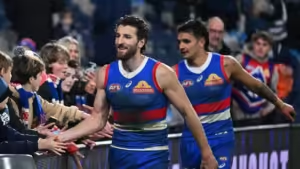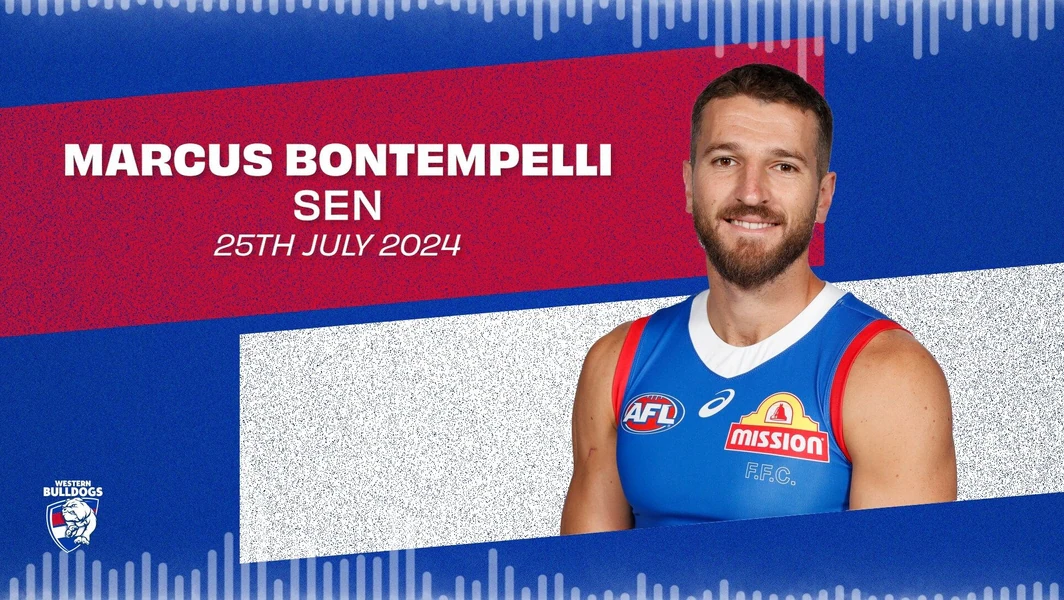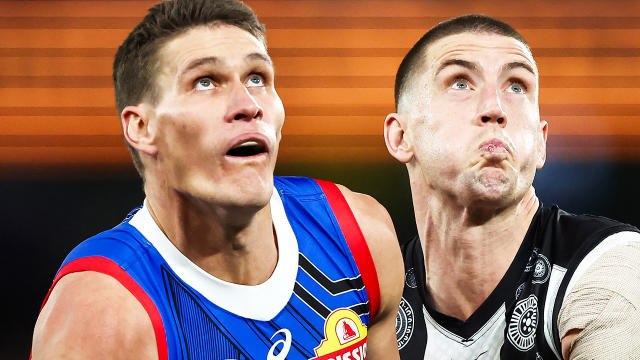The debate over All-Australian selections is always a lively one, given the sheer number of deserving players and the limited spots available. It’s a classic case of having more talent than positions, which makes for tough decisions. Each year, fans, pundits, and analysts will have their own opinions on who should make the cut.
In recent years, the competition for spots has been especially fierce with so many standout performances across the league. For players who are on the bubble, it often comes down to a mix of current form, impact on their team’s success, and sometimes even positional needs.
Are there any specific players or positions you think are particularly tough to call this year? Or any surprises in the lobbying that are catching your eye?
It does seem counterintuitive that the AFL commission hasn’t adjusted the All-Australian selection process to accommodate the evolving nature of the game. With the game becoming more complex and players showing extraordinary versatility, a 22-player squad sometimes seems inadequate to fully reflect the best talent across the league.
Expanding to a 23-player squad could align better with the modern game’s needs, allowing for:
1. **Better Representation**: A 23-player team could offer a more balanced representation of different positions and roles, reflecting a broader range of skills and playing styles.
2. **Flexibility**: A larger squad would provide more flexibility to account for players who might not fit perfectly into traditional positions but are impactful in their roles, such as versatile midfielders or utility players.
3. **Depth**: Given the increased depth of talent in the AFL, having one additional spot could ensure that more top performers are recognized, especially in a season with numerous standout performances.
4. **Alignment with Real-World Needs**: A 23-player squad would be more in line with real-world team compositions and could better mirror the dynamics of modern football strategies.
The decision to stick with 22 players might be rooted in tradition or logistical concerns, but as the game evolves, it’s worth reconsidering whether adjustments to the selection criteria or squad size might enhance the accuracy and fairness of the All-Australian team. It would be interesting to see if there’s any movement or discussion within the AFL to address this issue in the future.
That’s a practical approach—having a 23-player squad with five on the bench could streamline the process and reflect the current structure of AFL teams more accurately. Here’s why it makes sense:
1. **No Need for a Sub**: By expanding the squad to 23 and allowing five on the bench, there’s no need to designate a specific sub. This mirrors the real game setup where teams often have more flexibility with their interchange.
2. **Better Representation**: A 23-player squad allows for more nuanced selection, capturing the depth of talent and providing recognition for players who might otherwise be overlooked in a 22-player setup.
3. **Strategic Flexibility**: It accommodates modern strategies that often involve players filling multiple roles or shifting positions, reflecting the versatility seen in today’s AFL.
4. **Fairer Recognition**: It would ensure that standout players who might be on the fringes of selection are given their due recognition, particularly in a league where talent depth is significant.
5. **Alignment with Team Structures**: As teams have five on the bench during games, it makes sense to align the All-Australian selection with this structure, making it more representative of how teams actually operate.
It’s surprising that the suggestion was knocked back two years ago, especially given the evolving nature of the game and the increasing emphasis on versatile roles. Perhaps there are traditional or logistical reasons for sticking with the current format, but it seems like a sensible change that could enhance the All-Australian selection process.
If the AFL were to revisit this idea, it might be worth exploring how this change could be implemented smoothly and what impact it might have on the overall recognition of players.
The debate over the captaincy of the All-Australian team often sparks intense discussions, especially when there are strong candidates like Patrick Cripps and Zach Merrett. Both players have compelling cases, and the choice between them could come down to various factors, including their recent performances, leadership qualities, and impact on their teams. Here’s a look at both:
### **Patrick Cripps**
– **Leadership**: Cripps has been a standout leader for Carlton, bringing both skill and tenacity to the midfield. His ability to lead by example and rally his teammates is a significant asset.
– **Performance**: His individual performances are often marked by his ability to dominate the midfield, contributing both in terms of ball-winning and inside work.
– **Impact**: Cripps’ influence on games, especially in tight situations, and his role in improving Carlton’s fortunes can’t be understated.
### **Zach Merrett**
– **Consistency**: Merrett has been a pillar of consistency for Essendon, showcasing exceptional skills and endurance in the midfield.
– **Leadership**: As a vice-captain, Merrett has demonstrated strong leadership qualities and a capacity to inspire and guide his teammates.
– **Skill Set**: Merrett’s versatility and ability to impact games both offensively and defensively make him a standout choice for the captaincy.
### **Factors Influencing the Decision**
1. **Recent Form**: Evaluators will look at how both players have performed over the current season, considering consistency and standout moments.
2. **Team Impact**: The influence each player has on their team’s performance and overall success could weigh heavily in the decision.
3. **Leadership Qualities**: Beyond on-field performance, the ability to lead, inspire, and maintain team morale is crucial for the captaincy.
4. **Team Success**: If one player’s team has had a notably better season or demonstrated a significant improvement, that might give their captaincy bid an edge.
Both Cripps and Merrett are deserving candidates, and the decision might come down to the specific qualities the selectors value most in their captain. It will be interesting to see who emerges as the final choice and how their leadership is expected to shape the All-Australian team.
Absolutely, while Zach Merrett’s elevated performance this season is notable and reflects his ongoing development, the All-Australian captaincy does indeed involve more than just a strong individual season. It’s about leadership, influence, and overall impact on the team and the game.
Here are a few additional considerations in the captaincy debate:
### **Leadership and Influence**
– **On-Field Leadership**: The captain needs to be someone who leads by example, not just through their performance but also by guiding and inspiring their teammates.
– **Off-Field Presence**: The ability to handle media, engage with fans, and represent the team and the league positively is also important.
### **Team Success**
– **Impact on Team Performance**: How the player’s presence and leadership have contributed to the team’s success and morale throughout the season can be a key factor.
– **Playoff or Finals Performance**: If the team has made a deep run or shown significant improvement, that could influence the decision.
### **Consistency and Legacy**
– **Consistency**: While a great season is crucial, the captaincy often rewards players who have shown consistent high-level performance over a period of time.
– **Previous Achievements**: Past performance and leadership roles might also be considered, weighing in how the player has shaped their career and team over the years.
### **Balanced Evaluation**
– **Holistic View**: The selectors need to balance individual accolades with the ability to unite and lead a team. Merrett’s fantastic season may be a strong argument, but it’s also about how well he fits the role of leading the All-Australian squad.
Patrick Cripps’ leadership credentials and consistent performance over several seasons could be weighed alongside Merrett’s impressive form this year. The decision might hinge on which qualities the selectors prioritize and how they envision the captain’s role within the All-Australian team.
It will be interesting to see how the final decision aligns with these various aspects and who ultimately gets the nod for the captaincy.


